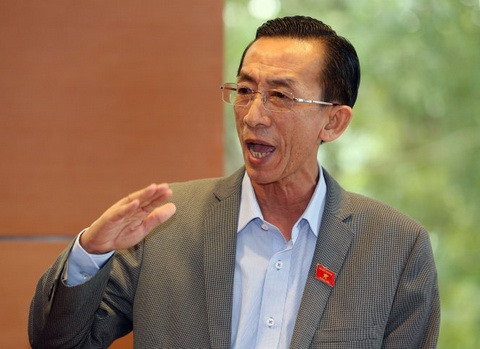This marks the second adjustment since 2023, bringing the total increase over the past three years to more than 17 per cent.
From May 10, Việt Nam Electricity (EVN) raised the average retail electricity price by 4.8 per cent, to more than VNĐ2,200 per kWh. This marks the second adjustment since 2023, bringing the total increase over the past three years to more than 17 per cent.
In an interview with the Vietnam News Agency (VNA) National Assembly (NA) Deputies have urged the government to introduce timely support policies to ease the burden of rising electricity costs on households and businesses, warning that without appropriate intervention, energy hikes could undermine the country’s growth momentum.
How will an increase in electricity price impact economic growth?

A price hike could lead to higher production costs, which may push up consumer prices and weigh on economic growth. In the context of Việt Nam’s ambitious GDP growth target of over 8 per cent this year, the adjustment in power prices needs to be carefully observed and factored into the broader macroeconomic management framework.
The recent increase in electricity prices makes it more urgent than ever to promote energy-saving awareness among the public and accelerate the transition to renewable energy sources such as solar power. It may help speed up renewable energy adoption, which helps reduce pressure on both households and enterprises facing increased utility costs.
The upward electricity price adjustment was inevitable, given that Việt Nam’s power tariffs remain significantly lower than those of many other countries. In developed nations, household electricity prices average around 20 US cents per kWh — equivalent to VNĐ5,200 — while even after the recent hike, Việt Nam’s average remains around eight US cents per kWh, or VNĐ2,200.
As the economy expands and incomes rise, especially with the middle class growing rapidly, a gradual approach to aligning electricity prices with international benchmarks is both rational and necessary. When Việt Nam becomes an upper-middle-income or even high-income economy, it will no longer be viable to maintain low electricity prices.
How do we offset the negative effect of raising electricity prices on economic growth momentum?
Deputy Trần Hoàng Ngân from HCM City

Targeted support measures are needed to help offset the impact, particularly for low-income workers and struggling businesses. These could include extending the VAT reduction, revisiting personal income tax and special consumption tax policies, and adjusting family deductions, to boost disposable income and stimulate domestic consumption.
With exports showing signs of slowing down, the economy now depends heavily on the remaining two growth drivers: investment and consumption. Foreign direct investment may face increased challenges in the near future, putting even more weight on public investment. When all three pillars, exports, investment and consumption, are under pressure, supporting domestic demand becomes vital to sustaining growth.
It is essential to ensure the new electricity pricing policy does not become a heavy burden on the public or businesses, particularly during a period when efforts must be focused on preserving growth momentum.
Deputy Nguyễn Quang Huân from Bình Dương Province

While the price increase may raise living and production costs, it is necessary to ensure long-term investment efficiency in the power sector, promote energy conservation, and foster renewable energy development. However, any price adjustment must be accompanied by appropriate support policies for vulnerable groups, particularly low-income households. Measures such as targeted subsidies or a well-designed tiered pricing structure could help protect the most affected consumers.
Keeping electricity prices low for too long primarily benefits foreign-invested enterprises and large-scale manufacturers, rather than SMEs and ordinary citizens. A clear, transparent and balanced roadmap for electricity price reform, combined with strong social welfare measures, is essential to ensure fairness and promote sustainable development. VNS





